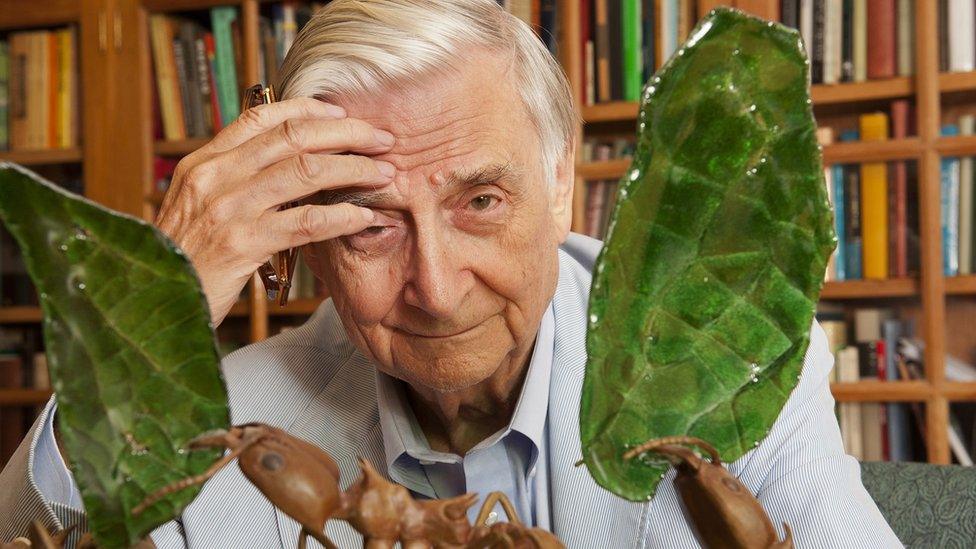Leading American naturalist EO Wilson, dubbed 'Darwin's heir', dies at 92
- Published

Wilson campaigned to halt the rapid global decline in biodiversity
Edward Osborne Wilson, one of the world's leading naturalists and conservationists, had died aged 92.
Wilson was an award-winning biologist and professor at Harvard and Duke universities and earned the nickname of the natural heir to Charles Darwin.
He specialised in studying ants and ecosystems, and campaigned to halt the rapid global decline in biodiversity.
He died on Sunday in Burlington, Massachusetts, the EO Wilson Biodiversity Foundation said.
No cause for his death has been given, but the foundation said a tribute to his life was planned for 2022.
"Ed's holy grail was the sheer delight of the pursuit of knowledge," said foundation president Paula Ehrlich.
"A relentless synthesiser of ideas, his courageous scientific focus and poetic voice transformed our way of understanding ourselves and our planet," she added.
Born in Birmingham, Alabama, in 1929, EO Wilson said he developed an interest in the natural world from a young age. After a fish's fin cut his eye during a fishing accident, his long-range vision was impaired, and he chose to focus on smaller creatures as he could study them up close.
Edward Osborne Wilson talks to Newsnight's Evan Davis
At the age of 13 he was credited with discovering the first colony of imported ants in the US, according to the Harvard Gazette.
He later studied at the University of Alabama, and completed a doctorate at Harvard, where he taught for several decades.
During his career he discovered more than 400 species of ants, and proved that ants usepheromone excretions to communicate with one another.
EO Wilson applied his study of ants to other organisms, including humans.
One of his most controversial books was Sociobiology: The New Synthesis, which argued that all human behaviour was a product of genetic pre-determination, not learned experiences. Published in 1975, it attracted widespread criticism, with some accusing him of racism and sexism.
His 1978 book On Human Nature, which won a Pulitzer Prize, elaborated on this link between biology and human behaviour, addressing other areas like sex and morality.
He even ventured into fiction with Anthill, a coming-of-age novel, published in 2010, about an Alabama boy trying to save marshlands.
Wilson was an avid campaigner for conservation, and once said destroying a rainforest for economic gain was like burning a Renaissance painting to cook a meal.
He also believed science and religion "should come together to save the creation" and published a series of letters to an imaginary Baptist, calling for an alliance to preserve the Earth's ecosystem.
Wilson was instrumental in launching the Encyclopaedia of Life, a free online database documenting all 1.9 million species on Earth recognised by science.